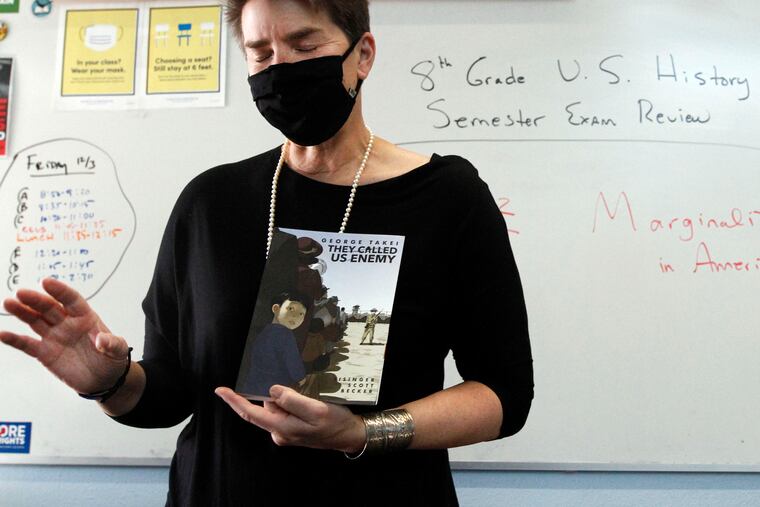We need to talk to kids about race — with facts, not opinions
Whatever teachers' opinions about race, they have no right to impose them on their students. Just like GOP legislators have no right to prevent teachers from talking about race in the classroom.

This year, Taylor Allderdice High School in Pittsburgh became one of 60 schools around the country to pilot the College Board’s new Advanced Placement course on African American studies. In an interview with the school’s student newspaper, a history teacher said the course would highlight Black “resistance movements” across time. “We focus on lesser-known historical figures — obviously we study MLK and Malcolm X — but we also focus on the Black Panthers, Angela Davis, and Fred Hampton,” the teacher explained.
So if a Republican-sponsored bill restricting instruction about racism and sexism passes in Harrisburg, will the Allderdice course run afoul of the law?
I’m talking about House Bill 1532, which says that teachers in public schools and universities may not “teach, advocate, or encourage” any “racist or sexist concept,” including the idea that the United States is “fundamentally racist or sexist.” Although the 2021 bill was never even voted on in committee, a Republican wave in November could revive it. If the bill became law, it would presumably make it illegal to discuss the radical feminist Angela Davis and the Black Panther leader Fred Hampton, who proclaimed that racism and sexism were baked into America’s DNA.
» READ MORE: Want to save our democracy? Talk — and listen — to someone you don’t agree with.
Are they right? It depends on whom you ask, of course. And we should be asking the same question of our students. But the Pennsylvania bill — like dozens of similar state measures around the country — would require schools to give a singular answer: no.
That’s not education; it’s indoctrination.
But to resist it, my fellow Democrats must avoid repeating the same error. If we simply tell our students that America is racist or sexist, we’re engaging in our own brand of indoctrination.
News flash: We disagree about the role and meaning of racism and sexism in the United States. Some of us think that these forces were built into the entire American project, as a feature and not a bug. Others believe that prejudice and discrimination are not a permanent part of our nation; they’re instead melting away, as the country moves closer to fulfilling the historic creed that all men (and now women) are created equal.
So why are we afraid to admit that people have different opinions on the topic when the kids are in the room? We should present multiple views of race in America, and let our students sort them out on their own.
“That’s not education; it’s indoctrination.”
Our best teachers already do that. In Boise, Idaho, for example, one instructor assigned excerpts from the 1619 Project — which roots American history in slavery and oppression, not freedom and progress — alongside the much more positive report by the 1776 Commission, which Donald Trump convened while he was president. (Joe Biden rescinded it as soon as he entered the White House.)
Other teachers share passages from A People’s History of the United States — the best-selling book by radical historian Howard Zinn — and ask students to compare it with their state-approved textbook. That’s how young people learn: by grappling with tough questions. If we give them the “right” answer, we’re not really educating them.
As a Philadelphian as well as a historian, I’m proud that our city was the first large municipality to require an African American history course for all its students. And I’m also delighted that the College Board plans to offer AP African American Studies across the country in 2024, after expanding the pilot course to 200 schools next year.
But if we establish state restrictions on the teaching of racism and sexism, we won’t be able to instruct these courses openly and honestly. And if we teach just one view of race and gender in America, we’ll miss out on the same opportunity.
We’re living through a hugely teachable moment. The big question is whether we have enough faith in our schools — and in ourselves — to let our students learn from it.
Jonathan Zimmerman teaches education and history at the University of Pennsylvania. He is the author of “Whose America?: Culture Wars in the Public Schools,” which was published last month in a revised 20th-anniversary edition by the University of Chicago Press.